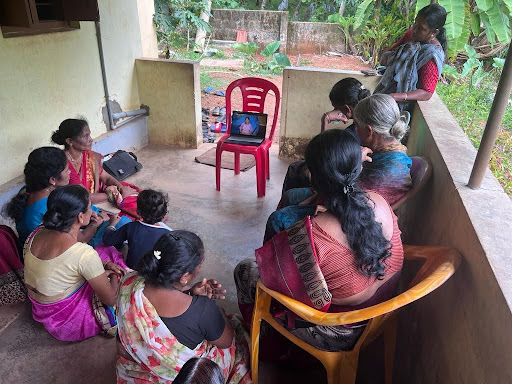Developing Financial Literacy and Aspirations in Uganda and India

Photo credit: Ester Agasha, during data collection in the field
Policy Context
Over the last decade, research has suggested that microcredit has a strong impact on a small subset of microcredit borrowers, but modest impacts on the great majority. Successfully targeting or creating such ”gung-ho” entrepreneurs, whose microenterprises are the most likely to flourish with interventions like credit availability remains unclear.
This study attempts to optimize the impact of microcredit interventions by investigating the roles of financial literacy and women’s entrepreneurial aspirations in Uganda and India.
Over the last decade, research has suggested that microcredit has a strong impact on a small subset of microcredit borrowers, but modest impacts on the great majority. Successfully targeting or creating such ”gung-ho” entrepreneurs, whose microenterprises are the most likely to flourish with interventions like credit availability remains unclear.
This study attempts to optimize the impact of microcredit interventions by investigating the roles of financial literacy and women’s entrepreneurial aspirations in Uganda and India.
Study Design
The study intentionally intersects a ”hard skill” intervention—financial literacy—with a ”soft skill” intervention—aspirations—to assess their efficacy and to explore the potential of an aspirations intervention to enhance hard skills acquisition, and vice versa.
Participants will be randomly sorted into one of the following four groups, which will receive:
- A financial literacy intervention through a mobile phone-based “farm finance” game;
- An aspiration intervention through an inspirational film and goal-setting exercises;
- Both interventions; or
- No intervention
Researchers measured impacts on women’s financial well-being, (such as financial knowledge, savings behavior, debt management, entrepreneurial agency, and overall financial empowerment). Data was collected through surveys administered at multiple time points before and after the interventions to assess the impact and sustainability of the interventions over time.
Results and Policy Lessons
Results from Uganda provide strong initial evidence for the effectiveness of financial literacy interventions, particularly in improving numeracy, knowledge, and behavior. Results from India showcase the promising potential of gamified interventions in enhancing financial literacy among women and while effects on financial literacy were about half as strong as in Uganda, the significant increase in financial literacy and aspiration levels through game-based learning highlights the effectiveness of this interactive approach. Unlike the Uganda results, the study finds that the financial literacy game treatment did indeed increase aspirations in India.

